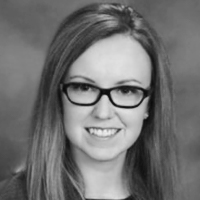The following is the January/February 2017 issue of research reviews for pediatric and school-based SLPs, written by Meredith Harold, PhD, CCC-SLP. Each month, Dr. Harold accesses 34 journals with the highest impact ratings for the area (Thompson- Reuters, SCImago, and h5-index). Then, articles that are (a) relevant to pediatric and school-based SLPs’ daily practice, and (b) draw from strong evidence, are included in the monthly review. The research reviews highlight the most important clinical findings, then indicate additional resources to be found in the full article. These reviews are meant to be brief, informative, and—most importantly—keep you up-to-date on evidence-based practice.
Reuters, SCImago, and h5-index). Then, articles that are (a) relevant to pediatric and school-based SLPs’ daily practice, and (b) draw from strong evidence, are included in the monthly review. The research reviews highlight the most important clinical findings, then indicate additional resources to be found in the full article. These reviews are meant to be brief, informative, and—most importantly—keep you up-to-date on evidence-based practice.
Peer Communication Support for Teen AAC Users
This article identified a method for increasing peer communication in middle-school AAC users. The treatment program consisted of three pre-intervention training meetings with the students' teams, followed by classroom-based peer intervention, supervised by paraprofessionals. Four middle-school students, all using iPads with Proloquo2Go, participated. The pre-intervention planning meetings ranged from a half hour to a little over an hour:
- Pre-intervention meeting #1: make a plan with the student’s support team (e.g. SLP, classroom teacher, SPED teacher) to promote appropriate peer communication. The group identified appropriate classroom activities and vocabulary that would be required, along with strategies the peers could use successfully.
- Pre-intervention meeting #2: train the paras assigned to the child. This meeting was between the coach (in the study, the researcher, but in practice likely the SLP) and paraprofessionals.
- Pre-intervention meeting #3: the paras train the peers assigned to each AAC user, supervised by the coach (researcher/SLP). The peers were taught several strategies, including: provide communication opportunities, use expectant delay, provide appropriate prompts, respond.

